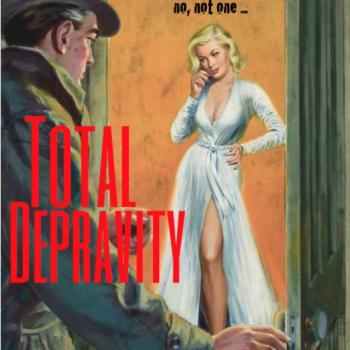So Franklin Graham says that churches, rather than governments, are responsible for meeting the needs of the poor. Either one or the other, zero-sum, in competition, etc.
This is not the view of most Christians or of most Christian churches. Nor is it an easy view to reconcile with the Christian Bible, which is full of admonitions to both the community of believers and to those in government that they are responsible for caring for the poor, the powerless, widows, orphans, strangers, aliens, victims, the sick, the naked and “those who do not know their right hand from their left.” This is presented as a responsibility for everyone — for kings, priests and prophets, for the nation and for the blessed community, individuals and groups. All groups and all individuals.
So, for example, when a deadly tornado devastates a town, who is responsible to help?
Well, among others, you are. Me too, of course. And not just us — everybody.
Responsibility — ethical obligation — is boundless and universal. All are responsible for all. No one is exempt.
Now, if that were all we had to say or all that we could know, we would likely be paralyzed, overwhelmed by an amorphous, undifferentiated ocean of need. We would be unable to respond effectively, specifically or appropriately to any particular dilemma. And we would come to feel powerless and incapable, thus becoming less likely to even try.
But that’s not all that we can know or all that we have to say.
We are all responsible, but we are not all responsible in the same way. We each and all have roles to play, but we do not all have the same role to play, and we do not each play the same role all the time.
Relationship, proximity, office, ability, means, calling and many other factors all shape our particular individual and differentiated responsibilities in any given case. In every given case. Circumstance and pure chance also play a role, sometimes a very large role, as when you alone are walking by the pond where the drowning stranger calls for help, or when you alone are walking on the road to Jericho when you encounter the stranger who has fallen among thieves.
Different circumstances and different relationships and different proximities entail different responsibilities, but no matter what those differences may be, all are always responsible. Sometimes we may be responsible to act or to give, to lift or to carry directly. Sometimes indirectly. Sometimes our responsibility may be extremely indirect — helping to create the context for the proper functioning of those institutions that, in turn, create the context that allows those most directly and immediately responsible to respond effectively. (Sometimes our indirect responsibility involves giving what we can to the Red Cross or other such organizations to help the victims of a disaster.)
But what Martin Luther King Jr. called this “inescapable network of mutuality” is like the Kevin Bacon game and none of us is ever more than six degrees separate from any direct responsibility. If we fail to fulfill our indirect responsibilities, then those more directly responsible will have a harder time fulfilling their roles. (And that, in turn, will make things more difficult for us in our own direct contexts, because that’s how mutuality works.)
What I’m describing, yet again, is subsidiarity. That’s the Catholic term for it, but it’s not exclusively a Catholic idea or even exclusively a Christian idea. It is, rather, an idea that is shared by everyone in every free society. It is part of what makes free societies possible — a prerequisite for democracy, for free markets, for human rights.
The only alternatives — various forms of tribalism or the brutish “war of all against all” of Hobbes or Ayn Rand — are not attractive. Nor are they compatible with human freedom. Hobbes knew this. Unlike Rand, he was not foolish enough to confuse a free-for-all with freedom for all.
(But doesn’t freedom have to mean the freedom to accept or to deny such mutuality, the freedom to deny any and all responsibility? Freedom can accommodate a certain amount of such irresponsibility, but beyond a certain threshhold or tipping point, the denial of this differentiated, but boundless and universal mutuality begins to leave power unchecked. And that power — political, clerical, financial, corporatist — will exploit its irresponsible freedom to deny freedom to the powerless. Orwell’s vision of a “boot stamping on a human face — forever” isn’t concerned with whether that’s a government boot or a corporate or ecclesiastical boot.)
And but so my point here is that responsibility to meet the needs of those in need is never an either-or situation. This responsibility is never exclusive. Yes, “Let the churches do it.” The churches must do it. It’s part of their job. But not only the churches. And let the government do it. The government(s) must do it. It’s part of their job. But not only the government(s). If either of those actors were left to handle this alone, they would be forced to go beyond their capacity, their competence and their proper bounds.
None of which is saying anything new or innovative or anything other than what the majority of Christians have believed for centuries. That neither Franklin Graham nor Marvin Olasky understands this is troubling. That they fail to understand this and yet are still treated as influential and respected spokespeople on this subject is even more so.












